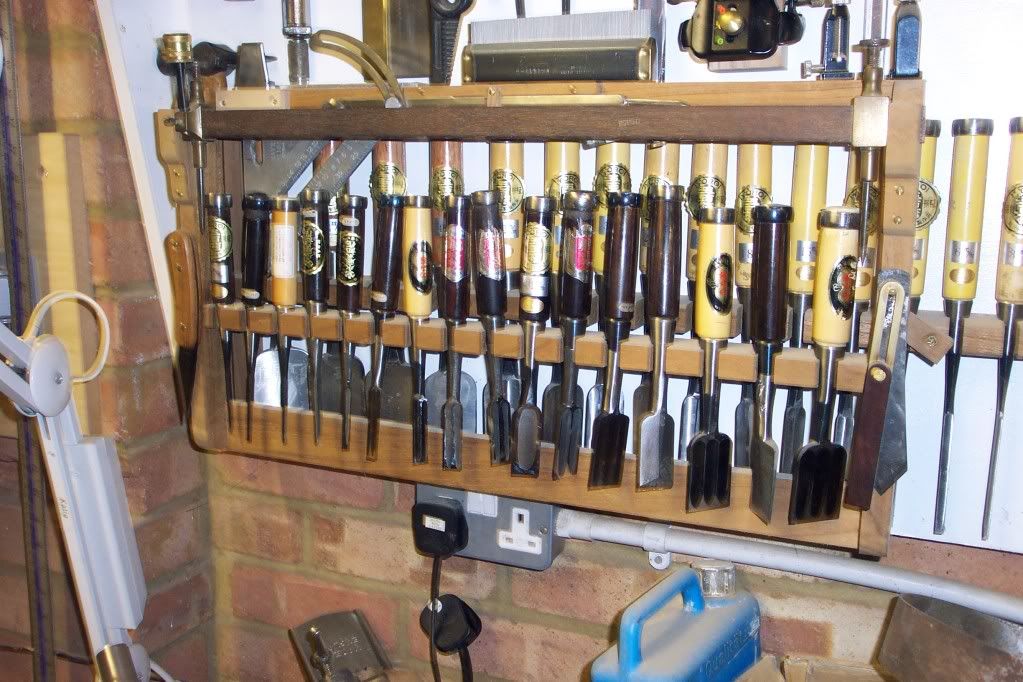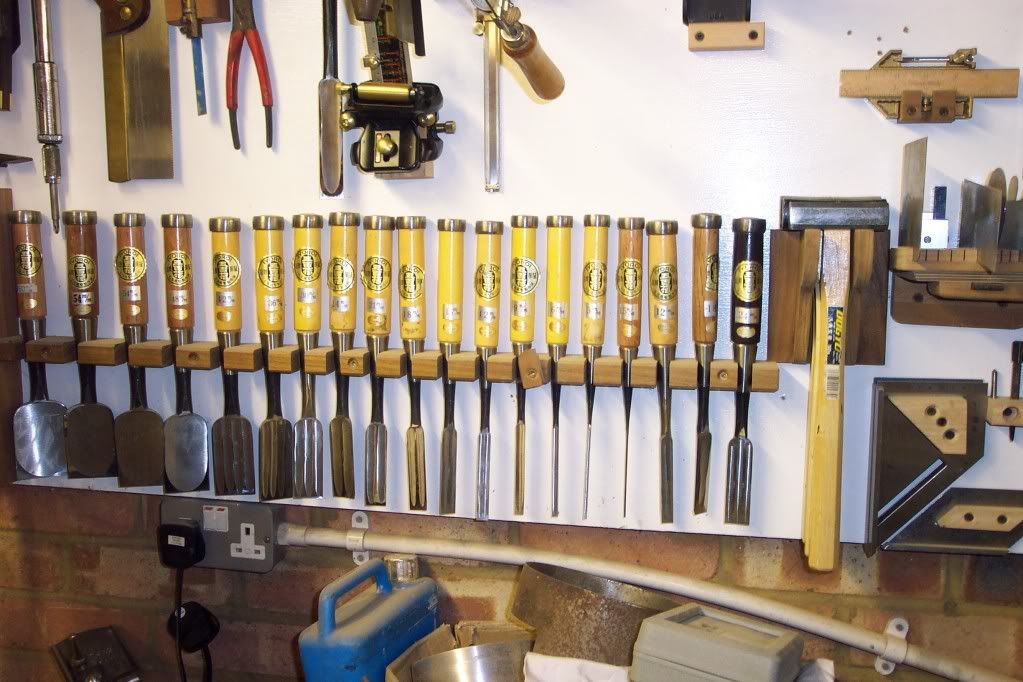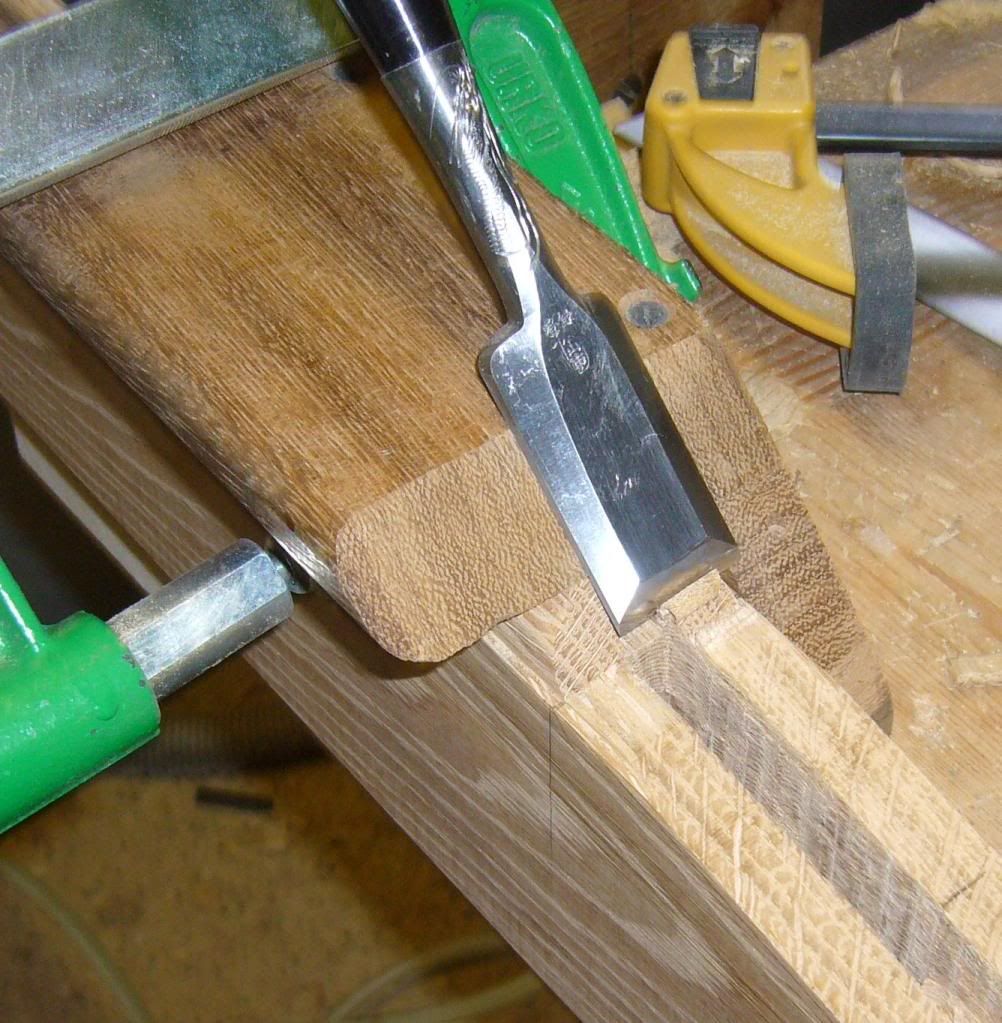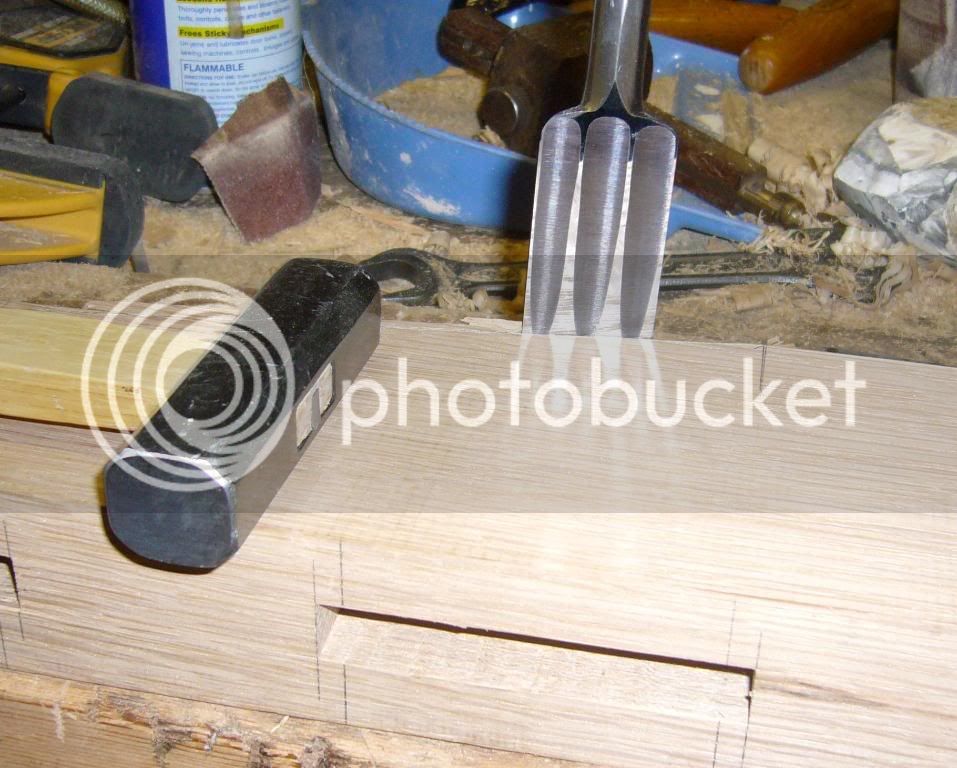Hi Mark,
I'm new here, but I was alerted to your plight by a friend.
Here's the problem, as I know it to be...
Those Iyoroi chisels are being sold, retail, for about $25-41 (sorry, no pound sign!). That puts them at a Japanese market retail price of about 3200 yen. I regret to say that at this price, there are scant few 'good' Japanese chisels, and none of them have the name "Iyoroi". You can spend more money and get good, proper, no nonsense Iyoroi, you can spend the same money and get a reasonable, non-named (but branded, the guy who made is is un-named) chisel, but you can't buy a 'name' and a 'decent chisel' for that price.
Caveat, you can luck out and get some fantastic chisels for real cheap, but it's pot luck. Spend more money and buy a known quality chisel, and it's guaranteed to be good.
I only know this because I've seen both sides of things here in Japan, retail and wholesale because I do run a Japanese tool store. :wink:
I try my hardest to make sure I keep my prices as low as is reasonable, and I wouldn't sell a chisel at that price without openly stating some reservations about it. I'd still be quite happy selling them, so long as whoever bought it was under no illusion that there is a good chance there might be some reservations...
I also sell some chisels that carry no reservations whatsoever. Almost to the point that if you have problems, I'll be shocked, impressed and astounded, all at the same time. I've sent off chisels that have been asked to do what the uninitiated would consider to be horrific, nay, verboten things, and they just keep on going. Just ask Derek what he does to the mere slips of metal he smacks through that crazy stuff Aussies (me included) call 'wood'.
But I didn't come here to rattle on about chisels, no, I came here because things are slow at the moment (massive natural disasters are terrible for business...) and because it was mentioned to me that the old fallacy of "Japanese tools are only for softwood" has been marched out of it's stable again.
You know something, the folks who make the tools here haven't heard about that one yet. Well, that's not entirely true. They have heard about it, but they don't know who started it and can only shake their head at how incorrect it is.
The biggest plane maker in Japan, Tsunesaburo, dedicates half their impressive catalog to planes that have blade intended for use with hardwood. Half their output is planes intended for hardwood. Of the 20+ standard kanna they list (was mentioned here a week or so ago, yeah, that's me) there are 3 or 4 that are really only intended for softwoods, but to counter that, 5 or so intended ONLY for hardwood, and those ones sell at a rapid clip.
What those planes are being used on, who can say, but it's not only softwood, especially considering most trim work in houses (and housing is where the fallacy began I believe) is nowadays, Japanese ash and oak. Last time I used them, they were pretty hard woods...
(That kanna are difficult to set up is yet another fallacy, sometimes. But nobody's thrown that bull into the ring yet. Yet...)
Same thing for chisels, no real adjustments needed. Make sure your bevel is at an angle suitable to the work, and have at it. If the edge is failing, it's a case of the chisel is inexpensive with a relative drop in outright quality, the chisel has too fine an edge that is too weak for the task or the person hanging off the end of the chisel is doing something wrong, and on that point ladies and gentlemen, it doesn't matter what chisel you have in your hand, if you're driving it wrong, it's going to give you problems. In my own experience, there's a bit of give and take between Western chisels and Japanese chisels in terms of toughness, durability, edge taking and edge holding. I'm not going to come out and say which is 'better' because that also depends very much on the person hanging off the end of the chisel.
(I will say that a good quality Japanese chisel is surprisingly tough. I've done crazy stuff that "isn't allowed" and got away with it, to my eternal astonishment...)
I'll be the first to admit, Japanese tools are not for everyone. But on the point of them being intended
only for softwoods, regrettably, that is a lie that's taken hold and is difficult to shake.
I'm trying my best to correct it, and have the back up of some of the biggest and best tool makers in Japan to try and erase the error but it's still an uphill battle.

(And I got none of this out of a book either. From the mouths of the folks who make the tools seems to be a little more reliable.)
katellwood; Koyama, Iyoroi, Koyamaichi (dragon chisels, with ebony handles! Mr. Koyama will be interrogated on that score...) are the brands I can see, although it's difficult with some being out of focus a little. The ones up back look to be 'tataki-nomi' which means they're made to be hit, all day, with a big hammer.
On Japanese planes, what do you want to know?
Stu.








































